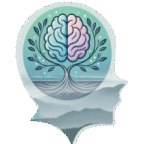Psychological Assessments: Your Ultimate Guide
Imagine having a map to navigate your mind. That’s what psychological assessments offer. They’re structured evaluations that measure how you think, feel, and behave. Used by psychologists, educators, and employers, these assessments blend science and curiosity to reveal what makes you, you. From spotting anxiety to unlocking hidden talents, they’re a game-changer for personal growth and professional decisions. Ready to dive in? Let’s explore.

Understanding Psychological Assessments
What Is Psychological Assessment?
So, what is psychological assessment? It’s a process where experts collect info about your mental world. Think tests, chats, and observations—all rolled into one. The goal? To understand your emotions, thoughts, and abilities. It’s not just about finding flaws; it’s about spotting strengths too. Picture it as a spotlight on your psychological makeup, guiding decisions for your health or future.
Psychological Assessment Meaning
The psychological assessment meaning goes beyond a single test. It’s about piecing together a puzzle—your puzzle. Using tools like questionnaires or interviews, professionals build a full picture of your mind. This isn’t guesswork; it’s a science-backed method to see what’s ticking beneath the surface, whether for therapy, school, or work.
Why They Matter
Psychological assessments aren’t just fancy paperwork. They:
- Diagnose issues: Pinpoint conditions like depression or ADHD.
- Guide solutions: Shape therapy or learning plans that fit you.
- Track growth: Show how you’re improving over time.
- Reveal strengths: Highlight what you’re great at—like problem-solving or creativity.
From classrooms to boardrooms, they’re a compass for navigating life’s challenges.
Types of Psychological Assessments
Psychological Assessment Test
A psychological assessment test is a specific tool in the assessor’s kit. These standardized tests measure things like:
- Intelligence: How you think and solve problems (e.g., IQ tests).
- Personality: Who you are at your core (e.g., the Big Five test).
- Emotions: How you feel and cope (e.g., anxiety scales).
They’re like a ruler for your mind—precise and comparable to others. Tests such as the Wechsler Intelligence Scale or Myers-Briggs are classics for a reason.
Risk Assessments
Some assessments dig into risks—like the chance of harmful behaviors. Used in therapy or legal cases, these check for things like aggression or self-harm risks. They mix interviews with tools to predict and prevent trouble, keeping safety first.
Neuropsychological Tests
Got a brain teaser? These tests focus on how your brain works. They’re vital for spotting issues like memory loss or concussion effects. Think of them as a brain health checkup, often used after injuries or for conditions like Alzheimer’s.
The Psychological Assessment Process
How It Works
Curious about the journey? Here’s how a psychological assessment unfolds:
- First Chat: A psychological assessment interview kicks things off. You share your story—why you’re here, what’s up.
- Tool Time: The expert picks tests tailored to your needs.
- Testing Day: You take the tests in a calm, focused setting.
- Number Crunching: Results get scored and analyzed.
- The Big Reveal: You get a report with insights and next steps.
It’s a team effort—you and the assessor working together.
Psychological Assessment Interview
The psychological assessment interview is the heart of the process. It’s a conversation, not an interrogation. You might talk about your past, feelings, or goals. This sets the stage for everything else, ensuring the tests hit the right notes.
Psychological Testing and Assessment Explained
What’s the Difference?
Psychological testing and assessment sound similar, but they’re not twins. Testing is the nuts and bolts—specific tools that give raw data, like your IQ score. Assessment is the bigger picture, blending test results with your life story for a full view. Testing asks, “What’s the number?” Assessment asks, “What does it mean for you?”
Why It’s a Power Combo
Testing gives facts; assessment adds meaning. Together, they’re unstoppable. A test might show you’re a quick thinker, but the assessment explains how that shines in your job or struggles in school. It’s data meets real life.
Benefits Across the Board
n Therapy
In mental health, assessments:
- Spot Disorders: Catch issues early with tools like mood scales.
- Plan Care: Design therapy that fits like a glove.
- Check Progress: See if treatment’s working.
In Schools
Kids benefit too:
- Learning Clues: Find out why reading’s tough or math’s a breeze.
- Support Plans: Get the right help, like extra time on tests.
At Work
Employers love them:
- Hiring Smarts: Pick the best fit for the job.
- Growth Goals: Spot leaders or skills to polish.
Crafting the Perfect Report
How to Write a Psychological Assessment Report
Writing a report is an art. Here’s the recipe:
- Set the Scene: Share the why—who you are, what’s the goal.
- Show the Scores: List test results clearly.
- Tell the Story: Explain what it all means for you.
- Offer Tips: Suggest next steps—like therapy or career moves.
Keep it simple. No one needs a PhD to get it.
Must-Haves
A top-notch report includes:
- Observations: How you acted during tests.
- Summary: The big takeaways.
- Advice: Clear, doable ideas.
FAQs
What Is Psychological Assessment?
It’s a deep dive into your mind using tests, talks, and observations to understand your mental health and abilities.
What’s a Psychological Assessment Test?
A specific, structured tool—like an IQ or personality quiz—that measures parts of your psyche.
How Does Psychological Testing and Assessment Work?
Testing collects data; assessment weaves it into a meaningful story about you.
What’s the Psychological Assessment Meaning?
It’s the process of figuring out your mental strengths, challenges, and needs with expert methods.
Why the Psychological Assessment Interview?
It’s the starting point—a chat to uncover your needs and guide the process.
